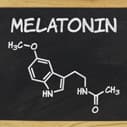The September 10, 2015 issue of the journal Cell published the discovery of researchers at Boston's Brigham and Women's Hospital of an association between higher wintertime melatonin levels and a decrease in multiple sclerosis (MS) symptoms.
"The rise in the past 50 years in the incidence of autoimmune disorders has reached an epidemic proportion and cannot be accounted by genetic risk only," write authors Francisco Quintana, PhD, and colleagues. "Thus, increasing attention is being paid to environmental factors and their impact in the immune response and T cell differentiation in particular."
Acting on the finding of improvement among 139 relapsing remitting MS patients during autumn and winter, Dr Quintana and his associates investigated the effects of melatonin in a mouse model and observed an amelioration of symptoms among animals that received the hormone. In human and mouse T cells, melatonin blocked the differentiation of pathogenic Th17 cells and boosted protective Tr1 cells. "We found that melatonin has a protective effect," stated Dr Quintana who, along with Mauricio F. Farez, is a corresponding author of the report. "It dampens the immune response and helps keep the bad guys - or pathogenic T cells - at bay."
"In the future, melatonin or its derivatives may be used in MS patients after appropriate clinical trials are conducted and dosage is established," Dr Quintana predicted.
"Here, we report that melatonin, whose levels show seasonal variability, control the balance between pathogenic and regulatory T cells," the authors conclude. "Future studies should investigate the effects of melatonin on innate immune cells in MS patients and also its role in inflammatory bowel disease and other immune-mediated disorders."








